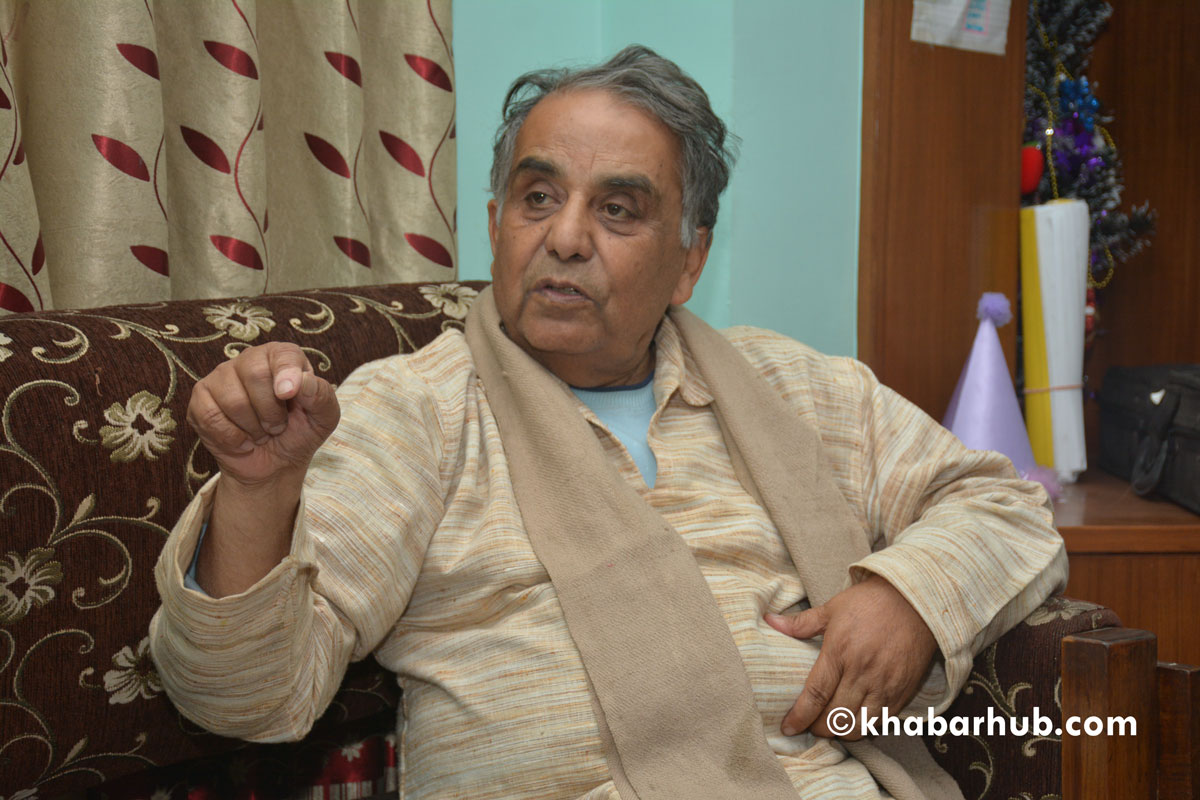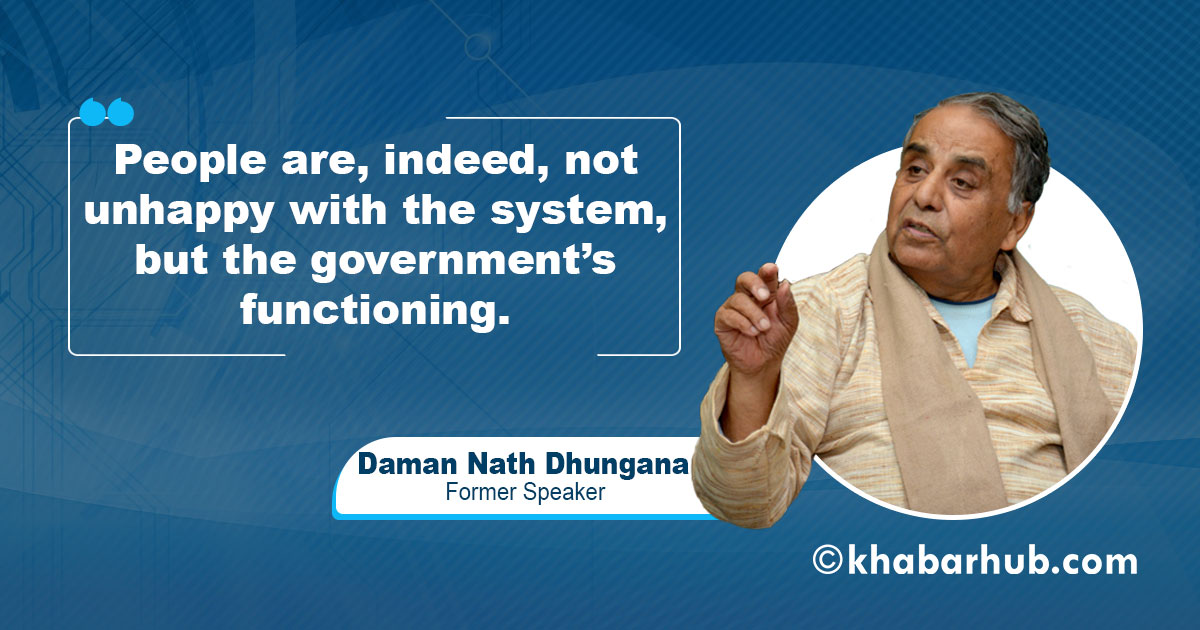Despite a two-thirds majority government formed in line with the federal republican constitution adopted through the Constituent Assembly, disenchantment among the people is ever increasing. The federal democratic republican system has been in place by overthrowing the monarchy. The Constituent Assembly promulgated the Constitution. Elections at all levels have been conducted. Despite radical changes, people are still dissatisfied with the government’s performance. The main opposition, Nepali Congress, has failed to play the role of effective opposition. In this political scenario, Khabarhub talked to senior political advocate and former Speaker Daman Nath Dhungana for his opinion. Excerpts:
Despite the formation of a stable government, people are disenchanted with the government’s performance. Nepali Congress (NC) has failed to portray itself as a strong opposition. How do you analyze this situation?
We have currently a stable government that holds a two-thirds majority. Talking about political stability, the time and situation are ideal. I don’t see any reason for people to be dissatisfied. People are, indeed, not unhappy with the system, but the government’s functioning. The grievances that we hear everywhere indicate that people are disappointed with the government’s performance. They have the right to change the government in line with the Constitution. You find dissatisfaction in India and America as well. Political uprising should happen once in history, not always. It is high time that we understood the reason behind people’s discontentment – whether it is the government’s functioning or the political system as a whole.

Either these communist parties transformed themselves as democrats or NC should emerge as a powerful party by aligning itself with other like-minded political forces.
Nepali Congress has failed to play the role of strong opposition. The government has not been able to live up to people’s expectations. What is your opinion?
There has been a misunderstanding that communism is gaining ground in Nepal. In fact, Nepal’s communists are not real communists. On the other hand, Nepali Congress losing votes does not mean that democratic ideology is on the wane. The communist parties’ winning the election is a result of their hard work, political strategy and organizational skill, which NC lacked. Communist parties have become an alternative to democracy here. And, this is a rare case in South Asia. People’s dissatisfaction will remain until we go for a democratic option in the country. Either these communist parties transformed themselves as democrats or NC should emerge as a powerful party by aligning itself with other like-minded political forces.
Why did NC, a democratic party, fail to prove to be an option to democracy in Nepal?
The fact is that the Communist party emerged as an alternative force to democracy in the country. This is because of the geopolitical influence in Nepal that has roots in our international relations since the British rule. The dissatisfaction here is basically due to lack of power which would function as an alternative to democracy.
The Speaker of the House of Representatives has been alleged of performing more like a party cadre. The opposition party is not performing like an opposition. Constitutional organizations are not functioning as they should be doing.
As I said earlier, Nepal’s communist parties are not genuine communists. However, they won the people’s confidence. Political parties have failed to give a democratic option. This is the reason why people are desperately looking for a change. Meanwhile, the constitution makers — the then CPN-UML, NC, and the then CPN (Maoist Center) — are divided among themselves rather than forging consensus on major issues.
The then King Gyanendra reinstated the House of Representatives. A majority of the people are unhappy with the way secularism was declared in a country like Nepal, which was primarily a Hindu state. Do you see any political dishonesty on the part of the parties?
Frankly speaking, I was against the idea of reinstating the parliament. Constituent Assembly was my agenda, which I thought would resolve the then political crisis by bringing the rebel Maoists into mainstream politics.
National consensus is the need of the hour. Mere promulgation of the constitution is not only the solution, no matter how progressive it is. We failed to capitalize on the achievements brought by the people’s uprising.








Comment